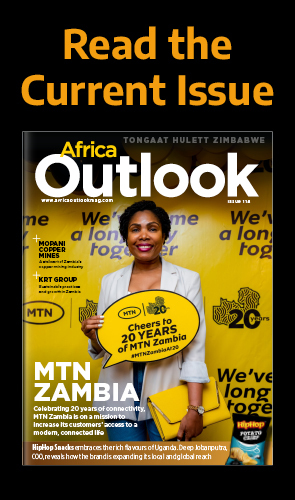The mining sector is dominated by diamond mining, but with reserves beginning to dwindle, we talk to Botswana Chamber of Mines (BCM) about diversification.
- INTRODUCTION
- CHALLENGES WITHIN THE SECTOR
- MINING LEGISLATION
- FACTS & FIGURES
- INTERVIEW: BOTSWANA CHAMBER OF MINES
- Since inception, how has the BCM developed and progressed in terms of its key objectives and the messages it tries to get across?
- What do you find most exciting about the mining industry in Botswana? On the flip side, what are its biggest challenges?
- How has COVID-19 affected the Botswanan mining industry?
- What trends are currently transforming the industry? How are you responding to them?
- Have you got any projects in the pipeline that you wish to highlight?
- Are you optimistic about the future of the Botswanan mining industry?
- CURRENT TRENDS AND INNOVATIONS
- KEY PLAYERS
INTRODUCTION
Botswana produces roughly a quarter of the world’s diamonds.
Prospectors from De Beers first discovered diamonds in northern Botswana in the early 1970s. The company partnered with the government to form Debswana and opened four diamond mines: Orapa and Lelhakane (1972); Jwaneng (1982), the world’s richest mine; and Damtshaa (2003). It continues to dominate the market.
Diamond mining contributes to roughly 50 percent of government revenue, which it has used to build infrastructure and make rapid improvements to living standards. Thanks to robust governance, it has managed its diamond revenue in an efficient and transparent manner.
The country also mines coal for power generation, while nickel and copper have been mined at Selebi-Phikwe since 1984. Its two other proven mineral resources are salt and soda ash.
CHALLENGES WITHIN THE SECTOR
However, one challenge is the necessity to create more jobs within the mining sector, as the country currently has a high unemployment rate (of approximately 20 percent).
Another is that diamond production is beginning to slow due to the downward commodity cycle and declining reserves. This means that Botswana needs to diversify its exports and economy – one way to do this is through mining for other minerals. Within the country there are currently a lot of mineral exploration initiatives, searching in particular for base metals and precious stones.
MINING LEGISLATION
Mining in Botswana is well regulated by the government, in particular the Ministry of Mineral Resources and Water Affairs, along with the Department of Geological Survey and Mines. The Mines and Mineral Act regulates licences for mining and exploration, while also balancing mining activity with environmental protection. Any prospective mining company needs to go through a three-step process to begin extraction in Botswana. The first of these is a 12-month reconnaissance permit, allowing a company to survey an area for mineral deposits. The second is a prospecting licence, which allows them to search for minerals – any results must be communicated to the government. After this, a company may apply for a 25-year license to begin carrying out mining.
FACTS & FIGURES
Type of industry: Primary
Main product(s): Diamonds, copper, nickel, coal
Contribution to GDP: $ 1.26 billion (2019)
Average annual growth rate: 2.6 percent
Number employed: 12,773 (2017)
INTERVIEW: BOTSWANA CHAMBER OF MINES
Botswana Chamber of Mines (BCM) was founded in 1984 out of the need to interact and network over issues of health and safety within the country’s mines. This was when the country’s mining industry was still in its infancy, and the need of such an organisation to drive these objectives was apparent.
BCM’s vision is to be a respected, effective and unified voice for the mining industry, which educates and shares knowledge with its stakeholders. Its mission is to represent the interests and needs of the mining industry in Botswana. We sat down with Charles Siwawa, the Chamber’s CEO, to find out more.
Since inception, how has the BCM developed and progressed in terms of its key objectives and the messages it tries to get across?
Charles Siwawa (CS): The genesis of Botswana Chamber of Mines commenced in 1984 with officers sponsored from the various mines to carry out chores for the organisation.
However, as the mining industry grew, it became apparent that a secretariat was needed to efficiently handle the daily duties. The Botswana Chamber of Mines office were opened in Gaborone in April 2010.
The Chamber has grown significantly over the years – initially it was formed by five mining companies and today its membership has grown to over 35 – and growth is still anticipated to occur in the foreseeable future. Notable projects within the Chamber include artisan skills development, supply chain process and focussing on local entrepreneurs. We have also achieved an advocacy role with the government and non-governmental organisations, with the intentions of ensuring effective communications with all our stakeholders.
Mining safety, health and environmental performance has improved tremendously during the past 10 years. The fact of peer review has assisted this industry to grow its performance as networking played a critical role in sharing of ideas for improvement.
It is the Chamber’s hope that it develops in its desire to be an organisation that educates and shares knowledge. The interventions undertaken through engaging the public has endeared the Chamber well through becoming an organisation of trust and transparency.
What do you find most exciting about the mining industry in Botswana? On the flip side, what are its biggest challenges?
CS: It is exciting that Botswana’s mining industry is expanding. There is significant mineral exploration taking place, to the extent that the country sees more companies opening up their exploration activities to mining operations. The companies are encouraged to beneficiate their produce within the country, hence stimulating the GDP and enhancing employment opportunities.
The challenges that the mining industry in Botswana faces are primarily commodity price fluctuations, grade of mineral deposits being on the lower quartile of the world scales and infrastructure provision across the country.
However, the government has made significant progress in the provision of infrastructure across the country, in particular roads, electricity, water, communication and so forth. These are commendable efforts on the part of government, especially considering that some of these mineral exploration activities are in remote parts of the country.
How has COVID-19 affected the Botswanan mining industry?
CS: The mining industry was affected to a great extent, primarily because all mineral products are consumed outside of the country. The situation has to improve first from the outside markets before the mining industry can make headway on the recovery process. We take note that gold remained positive in its price performance, but the country has only one gold mine that produces relatively low tonnages of gold.
In terms of the actual infections, there were very few incidents of infections at the mines, even though they were operational throughout the lockdowns (as they were considered an essential service).
What trends are currently transforming the industry? How are you responding to them?
CS: A current trend is the beneficiating of mineral products at the host country, as espoused by the African Union through the African Mining Vision (AMV). Some work has already been done to beneficiate diamonds in the country, whereas other studies are currently being undertaken to seek pointers of recommendations.
Furthermore, there is a lot of mineral exploration activity which will possibly lead to mining operations. The minerals are varied but the lead is in base metals and precious stones.
Have you got any projects in the pipeline that you wish to highlight?
CS: There are a few projects in the western part of the country aimed at producing copper.
This area has recently received mineral exploration focus as a result of available infrastructure in the area such as roads, telecommunications and electricity. It is anticipated that at a minimum two mines should be operational in that area in the next three years.
Are you optimistic about the future of the Botswanan mining industry?
CS: The future of Botswana mining industry is pointing northwards. The key is in ensuring sustainability of the mining operations through prudent feasibility studies, which are subjected to rigorous tests of variability in both inputs and outputs.
CURRENT TRENDS AND INNOVATIONS
With low-carbon minerals in increasing demand, Botswana can capitalise by decarbonising its industry.
Industries and governments across the world are trying to transition to a low carbon economy.
Many low-emission energy systems are more mineral intensive than those powered by fossil fuels, so there will be increased demand for copper, lead, and more; a demand Botswana could capitalise on with its increased mineral exploration. Low-carbon premium minerals will be particularly in demand.
In order to decarbonise their mineral production, mining companies can incorporate the use of renewable technologies into their processes.
Mining companies across Botswana are increasingly keen to develop solar power energy to meet their electricity needs in an economically viable, sustainable manner. The country’s main coal plant, Morupule B, has been plagued by technical problems that leave it unable to operate at full capacity, which makes finding a reliable power source even more important. Furthermore, electricity tariffs are rising within the country.
There is also an increasing move towards digitisation within the mining sector. There are numerous reasons for doing so, the most important of which are to increase productivity, improve safety and reduce costs.
In Botswana and beyond there is a significant uptake of digital services including analytics and process-specific dashboards, remote process management platforms, and digital safety portfolios including collision avoidance and personal alert software.
Collecting and processing large amounts of data will be essential for Botswanan mining companies as they digitise and automate their operations. One by-product of this is that being transparent with this data will improve the mining industry’s relations with stakeholders.
KEY PLAYERS
The companies shaping and disrupting the mining industry in Botswana
Solara Holdings has a proven track record in providing practical solutions to establish, operate and support mineral processing plants. It provides support with any aspect of the mineral processing cycle, from outsourcing operating and maintenance solutions, to performance monitoring and process optimisation.
De Beers
Group R Mining & Exploration
Ghaghoo Diamond Mine
DRA
Minergy


































